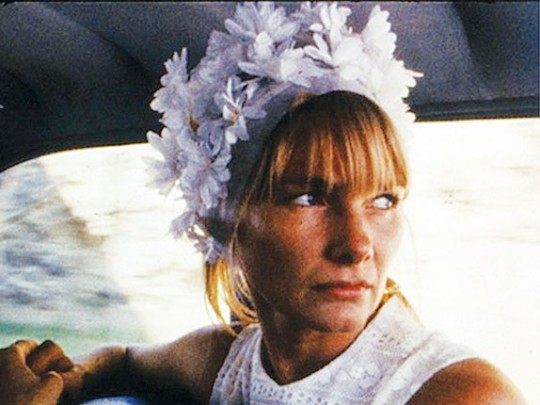
Nathalie Léger on Barbara Loden
You have to meet Mickey Mantle, Fred Wiseman had said to me at the beginning of my research—he knew Barbara Loden when she was a dancer at the Copacabana, you should meet him, you never know. I do some digging around: in the 1950s Mickey Mantle was the most famous baseball player on the New York Yankees after Joe DiMaggio, considered to be the greatest switch hitter of all time, a true icon of working-class America. I went to Scranton where he was staying for a few days and we met at the entrance to the Houdini Museum, where he is a regular visitor. He explains to me that in this rather pathetic pantheon devoted to the king of escapology the sense of chaos is structured around a comforting idea. He takes a deep breath: “Down here things vanish.” He breathes out noisily: “But they all end up here again.” He lowers the peak of his cap and sits down on one of the benches in the lobby of the museum, which is situated inside a tiny, rickety old building at 1433 N. Main Avenue, Scranton. Behind us, beyond the table that serves as a ticket desk, the Houdini Tour is exhibited in a series of dim, untidy rooms with blacked-out windows and walls lined with old documents, posters, portraits, and prints. There are a few small mementoes, counterfeit relics, a stage, a lamé curtain, pompoms, festoons, folding chairs for the show. “Do Spirits Return? Will the spirit of Barbara Loden return?” Mickey Mantle asks me, blinking. He is old. Once upon a time he had red hair. He used to be a serial womanizer. Getting up to go to the drinks machine he rises too quickly and loses his balance. Now, standing there talking to me, small and compact, a can of Sprite in one hand, while he steadies himself against the drinks machine with the other, he appears to be concentrating on some longstanding pain. He says, “We always forget that even though he had fought against it all his life, Harry Houdini became an adept of spiritualism toward the end of his life—he became passionate about it in the crazy hope of making contact with his mother who died in 1913—around the same time, I think, that your Proust was doing the same thing with writing, isn’t that right?” I mentally go through my notes again: Mickey Mantle, hero of the New York Yankees, a typical American hunk, with regular features, a slightly vacant expression in his eyes, a dimpled smile, an impoverished childhood, sent down the mines at the age of twelve, an astonishing batsman, famous for hitting 530 home runs—his...
You have reached your article limit
Sign up for a digital subscription and continue reading all new issues, plus our entire archives, for just $1.50/month.
Already a subscriber? Sign in




